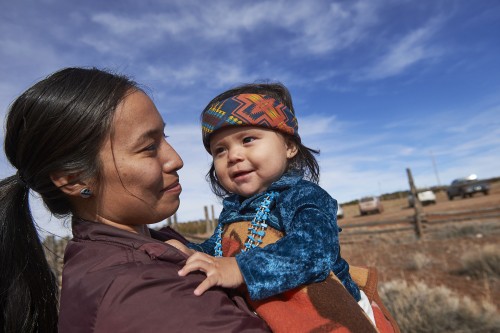
Findings published in the New England Journal of Medicine show a new, long-acting antibody protected infants throughout the respiratory syncytial virus (RSV) season with a single dose. The antibody is nirsevimab, and the findings from the MELODY trial show one dose provides babies with rapid and direct protection against RSV disease during the five-month RSV season.
RSV is a common, contagious virus that usually circulates during the winter months and causes respiratory tract infections. RSV symptoms range from mild, cold-like symptoms (like cough and congestion) to more severe illness (like bronchiolitis and pneumonia). In infants, RSV can cause difficulty breathing and this virus is a common reason infants may be hospitalized during the first year of life.
RSV affects infants around the world. Native American infants are at increased risk for serious RSV disease with hospitalization rates up to 2.5 times higher than in the general population.
Vaccines candidates for RSV have been elusive, and the findings from the MELODY study are noteworthy. A single dose of nirsevimab reduced the incidence of medically attended RSV-associated lower respiratory tract infections by 74.5%. Nirsevimab had a good safety profile. Adverse events were similar in type and frequency in infants who received nirsevimab or placebo.
We asked infectious disease prevention team members to comment on their experience working on this study.
“My youngest child had RSV when she was 6 months old, and we spent a week in the hospital,” said Gwen Livingston, a Diné nurse who worked on the study. “It was very stressful and worrisome. This study will help in preventing future hospitalizations due to RSV.”
“Knowing that I was part of the MELODY study makes me feel proud,” said LaDonna Becenti, a Diné research program assistant working in Fort Defiance on the Navajo Nation. “We now know [this product] will help prevent RSV with a single dose of vaccine throughout a whole RSV season.”
The MELODY study was conducted in 21 countries, at hundreds of sites including several in the Navajo Nation, where the Center for American Indian Health worked closely with the Navajo Nation Human Research Review Board and healthcare facilities. The Center for American Indian Health is honored to have collaborated with Tribal communities to offer participation in pivotal research studies over several decades, which have demonstrated the efficacy of three vaccines all American infants now receive in the first year of life: Hib, pneumococcal, and rotavirus vaccines. In the coming years, if licensed and recommended by the FDA and CDC, RSV antibodies may be provided as a strategy to protect babies from this common and serious infection.